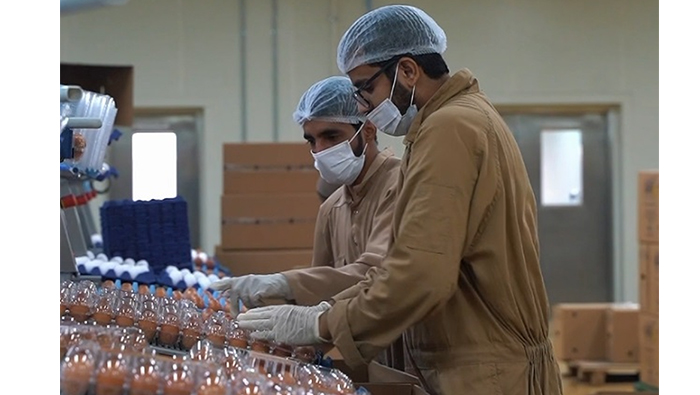
Ibri: As part of a national drive to strengthen food security and achieve self-sufficiency, the Sultanate of Oman is advancing a series of strategic projects in the animal sector within Al Dhahirah Governorate. This initiative is a core component of an integrated development plan designed to bolster the national economy and supply high-quality food products to both local and Gulf markets.
These projects align with the objectives of "Oman Vision 2040," which prioritise food security and aim to build a sustainable agricultural and livestock sector founded on innovation and effective investment partnerships.
Eng. Mohammed bin Ali Al Shandoudi, Director of the Animal Wealth Department at the Directorate General of Agriculture and Water Resources in Al Dhahirah Governorate, reported that the relevant authorities have executed several investment projects in the governorate's animal sector. This is part of continuous efforts to enhance the food security framework, develop local production, and move towards self-sufficiency. He confirmed the signing of seven investment contracts, spanning an area of over five thousand acres, with a total investment value of approximately OMR35 million.
Al Shandoudi highlighted the "Gulf International Poultry Farm" project as one of the most significant undertakings in this field. The project focuses on table egg production to meet domestic and Gulf market demand, achieving a daily output of around one million high-quality eggs.
He also announced the signing of a contract for a new project under Subul Agricultural Consultancy, slated to commence production at the beginning of December this year (2025). This project, a local initiative by the people of the governorate, will utilise a cage system for layer hens and is projected to produce roughly 46 million eggs annually.
Furthermore, Al Shandoudi noted the signing of a usufruct agreement with Al Nour Al Haditha Company for a landmark project to produce table eggs and liquid egg products. This initiative is expected to diversify the governorate's animal production projects and contribute significantly to achieving self-sufficiency at the national level.
Regarding red meat production in Al Dhahirah Governorate, Eng. Al Shandoudi detailed that three usufruct contracts have been finalized. The most prominent is a project for breeding local goats in the Wilayat of Dhank, managed by Al Anaam Business Company.
He described this as an integrated project, featuring storage facilities, breeding and fattening barns, a veterinary clinic, administrative buildings, and a quarantine facility. The project aims to enhance red meat output by raising the local goat breed, targeting an annual production of approximately 10,000 head. The initial investment is estimated at OMR1.35 million, with the first batch of goats expected to arrive and pilot operations to begin by the end of 2025.
Al Shandoudi added that two additional contracts have been signed in the governorate and are currently under construction. These projects are anticipated to become major contributors to red meat production by 2026. He also mentioned that a poultry meat project is ready to commence operations in the coming months.
He emphasised that these projects have tangibly strengthened national food security indicators by supplying local and international markets with high-quality livestock products and reducing dependence on imports. They have also driven advanced rates of self-sufficiency in the food sector, reflecting Oman's strategic commitment to achieving food sustainability.
Al Shandoudi also pointed to the vital role of the "Tatweer" platform in organising and regulating investment opportunities. The platform ensures a level playing field for investors and facilitates fair competition for the projects listed, thereby enhancing the investment appeal of the animal sector.
From the private sector perspective, Waleed bin Hamoud Al Rahbi, Head of Administration and Human Resources for the Gulf International Poultry Group, stated that the company is a leading producer of fresh table eggs in Oman and plays an effective role in reducing import volumes.
He elaborated that the project is established on an 18-million-square-metre usufruct plot allocated by the Ministry of Housing and Urban Planning, representing a total investment of OMR26 million.
With a production capacity of one million eggs per day—equivalent to 360 million eggs annually—the project is located in the Wilayat of Ibri on a 4,285-acre site, he said. Its facilities include 5 breeding halls, 15 production halls, a water treatment plant, a fertilizer factory, a veterinary unit, and a dedicated fuel station for company vehicles and barn heating.
Al Rahbi confirmed that the project has delivered substantial value to the governorate since its inception by generating job opportunities for Omani nationals and integrating small and medium enterprises into its supply chain, thereby supporting the local economy and fostering sustainable development.